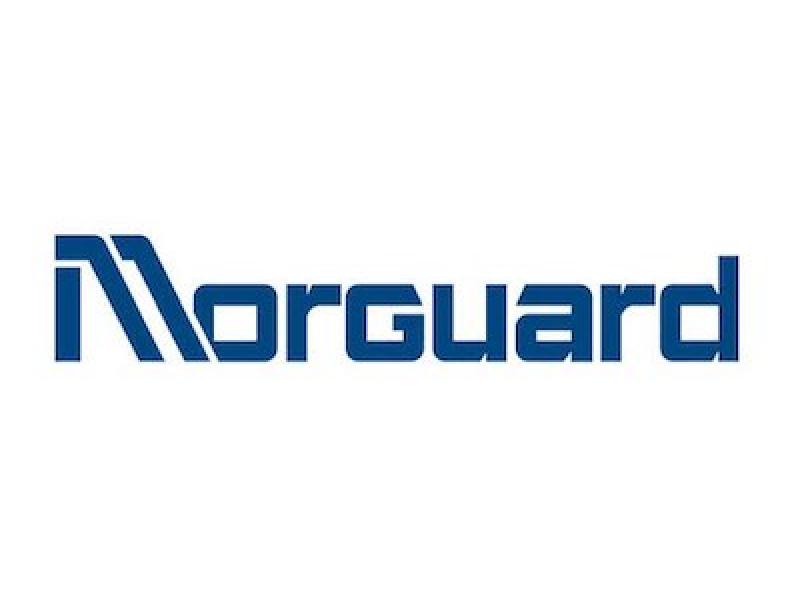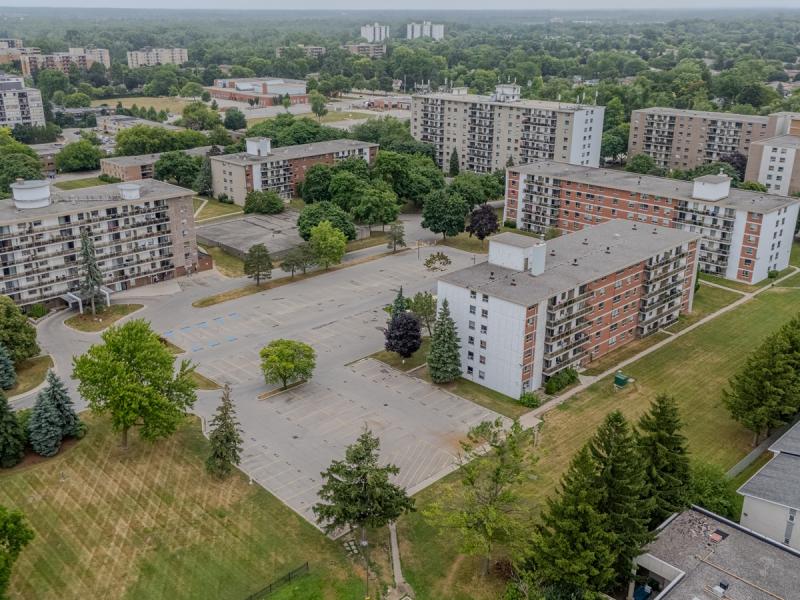
ULI Toronto Modern Succession panelists from left, moderator Lori Beausoleil, Anna-Maria Kaneff of Kaneff Group, Christina Sorbara of Sorbara Group and Andrea DelZotto of Tridel. (Courtesy ULI Toronto)
Three female members of prominent families in the Canadian development industry shared their experiences at a recent Urban Land Institute Toronto event at Toronto Region Board of Trade.
Retired PwC partner, corporate board chair, and diversity, equity and inclusion advisor Lori Beausoleil moderated the discussion with Sorbara Group of Companies vice-president of corporate knowledge Christina Sorbara, Kaneff Group executive vice-president Anna-Maria Kaneff, and Tridel Group of Companies executive board member and Concrete Cardinal chief executive officer Andrea DelZotto.
The women touched on various stages of their lives and careers, challenges they experienced, support they received and other situations they’ve encountered and dealt with.
Here are their stories:
Christina Sorbara
Sorbara Group has operated commercial, industrial, office and retail properties, managed residential rentals, and built high-rise and low-rise communities in the Greater Toronto Area.
Sorbara is a third-generation member of a company celebrating 80 years in business and, in addition to her corporate role, she’s also the chair of her family’s charitable foundation.
Real estate was a part of most family conversations Sorbara said she can recall from her childhood. She remembers being in the car with her father who would tell her details about buildings and the transactions involving them as they drove past.
Sorbara later finished college and moved to Germany to work for BMW for a year before deciding to return home and join the family business.
“One of the most positive attributes of our family and our business is that we include everyone,” said Sorbara. “Everyone’s involved in getting us to the next phase.”
Sorbara passes on information to family members that have an arm’s-length relationship with the business so they know about its importance and the responsibility to carry it forward to future generations.
When it comes to her own children and work, Sorbara said she enjoys the challenge of trying to be more efficient with less time, as opposed to achieving balance.
Sorbara’s grandfather suffered a stroke when she was 13 and she had to learn his wisdom through her father, uncles, aunt and employees who had worked with him.
One of the things she picked up was that the family was blessed with wealth that could be shared with others, and that has fuelled her philanthropic efforts.
The company is also implementing software that gives employees the opportunity to vote every month on which communities they want to build and what charitable organizations they want to support.
Anna-Maria Kaneff
Kaneff Group is celebrating its 70th year of operations in 2022. Company founder Ignat Kaneff passed away two years ago and the company is in its second generation of family leadership.
Kaneff Group builds high- and low-rise homes, develops and manages commercial plazas and office centres, and manages its own golf courses in Ontario.
“I run the company with my sister and my mother and I am in charge of investments, strategy, corporate development and business development,” said Kaneff, who added she’ll also eventually take the reins of the I. Kaneff Charitable Foundation from her sister.
Kaneff grew up around construction sites and worked as a cleaner at one of the family’s golf courses from age 12. However, she wanted to carve her own path and combine her interests in international development and finance.
She ended up working in investment banking in New York City and earned a master of business administration degree from Harvard Business School before returning home and eventually becoming Kaneff’s vice-president of commercial.
“When I first joined the company 11 years ago, my father thought it was important that I had P&L (profit and loss) experience,” said Kaneff. “So he put me in charge of our smallest division at the time, the one that I really couldn’t mess up.
“He wanted to make sure that I had an opportunity to cycle through different parts of the business. I knew going in that there was going to be a lot of concern, distrust and uncertainty about whether I was capable and whether I was interested in working in the family business.”
Kaneff said she was very self-aware about joining the company in a leadership position and that she would be working with people who had been there for decades.
“I approached it like I had approached every other job, which was I was just going to work my butt off to make sure that I was engaging, that I listened to people’s perspectives and that I was really a team player that would learn from these people because they had a lot to share.
“So I really went in with so much determination and grit to try to do my best, to make sure that I earned the trust of the people that I was working with, because essentially they had seen me grow up and I was parachuted in to be their boss.”
Kaneff had spent her earlier career working in male-dominated environments, so she wasn’t concerned about it when joining the family company. She had a couple of early wins in turning properties around at Kaneff, which helped her gain respect from colleagues.
“I think it’s really easy for family-run companies to sit back and have people sit on their laurels off the reputation of what has come before,” said Kaneff. “I think that’s a reason why 95 per cent of companies at the third-generation level fail.”
Kaneff stressed the importance of re-evaluating ideas and assumptions, constantly testing those assumptions and surrounding oneself with smart people who can challenge and push each other to make the company more successful.
“It’s the best idea in the room that carries the weight and not the loudest voice or the person with the last name,” said Kaneff.
Kaneff said balancing work and being a mother to two daughters doesn’t exist in her world. She believes it’s impossible to do everything that needs to be done well.
“I think I do everything in a mediocre way,” she said. “When I need to work really hard, I work really hard. And when I don’t, I try to spend as much time with my kids as possible. It’s a scale and it tips constantly.”
Andrea DelZotto
Tridel Group of Companies is one of the largest privately held residential real estate groups in Canada. It consists of several operating companies focused on development, sales, construction, property management and other related real estate services.
It’s responsible for producing more than 85,000 homes and its property management divisions manage 72,000 condominium suites, more than 23,750 rental units, 23.8 million square feet of residential and commercial rental space, and 91,000 acres of land.
While DelZotto grew up in a real estate family, she said there was never any pressure on her to join the business. She earned a sociology degree from Western University and served as a Tridel executive from 1996 until a year ago.
DelZotto said many people can feel trapped in a family business, which can create challenges and make them struggle with their self-worth, but she always felt supported and her father wanted her to have the freedom to experiment and do things that she found rewarding.
DelZotto became a Tridel board member in 2017, was her father’s alternate until he passed away two years ago, and still has her board role. Her alternate is the first non-family member in the boardroom.
The beauty of Tridel’s board, DelZotto said, is the willingness of its members to listen and learn from each other.
“I will never be my father and there was a time I realized that’s OK, because I’m not him,” said DelZotto. “And the world is not the world he grew up in and built the business in. It’s a very different place.”
While DelZotto said she had big shoes to fill, she recalled her father saying: “When you are using your own unique talents to do something, you’re absolutely not an imposter. You’re yourself and that’s the best you can be.”
When it comes to balancing motherhood and business, DelZotto — who recently turned 50 and has three sons — said it isn’t really achievable but it’s important to set realistic expectations to make things work.
DelZotto and Anthula Nunes founded Concrete Cardinal — a collaborative research, innovation and investment team focused on providing venture capital and private equity — in 2020. It uses the tagline “Innovating the invisible” and focuses on giving under-represented people and communities a voice and opportunities.
“I decided to do something which satisfied my own kind of entrepreneurial spirit,” said DelZotto.
“A smart building’s not going to work unless you’ve got smart people in it that know how to run it. And I feel like communities don’t work unless you’ve got really healthy and fulfilled people living in those communities.”
DelZotto said she could have tried to make her new venture work alongside her Tridel executive responsibilities, but didn’t think it would be best for the family business.
“Don’t try to make things fit that don’t necessarily fit,” she said, “and find a way to make it work.”











